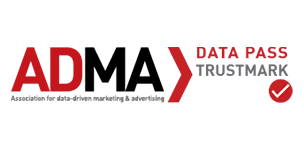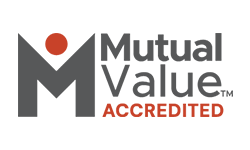Members are advised of a delay to credit card statements. We understand the importance of these statements and are working urgently with our supplier to resolve the issue. We estimate statements will be available online by the end of the week. We apologise for the inconvenience.
Unexpected winnings scams, like unexpected money scams, lure people in with the promise of surprise money claims, an extravagant prize such as a car, electronics or a holiday win. The news could be delivered via phone call, email, text or social media message, or an authentic looking letter in the mail.
You’re asked to pay a small fee to claim your winnings and this is often framed as taxes which must be paid in order for the prize to be released. They use your interest to steal money from you, as well as stealing your personal information for a range of fraudulent activities.
Examples of these types of scams include:
- Inheritance scams
- Scratchie or spin the wheel prizes
- Lottery scams
- Holiday scams
It’s important to be cautious of people who are especially interested in getting money out of you and if it appears too good to be true, if probably is. For more information visit Scamwatch.
Warning signs and what to look for
- Remember that you can’t win a competition that you didn’t enter.
- If you’re asked to pay a fee to receive a prize, it’s very likely that it is a scam.
- Messages state that the offer is 'legal' or has 'government approval'
- A court order says you are a beneficiary and asks for your identity information or money to make a claim
How to protect yourself
- Always stop, think, and check before you act. Offers of free money are too good to be true and are likely scams.
- If you would like to check whether any claim is legitimate, check that they are a registered company. Do not rely on details that have been supplied to you.
- Never share your bank, credit card details or your identity documents to anyone you don’t know or trust. Government departments or trusted companies will never ask you to pay money upfront to claim a grant or rebate.
- Check with your bank, a legal service or a trusted friend or family member, to see if an offer is legitimate.
- Do an internet search using the names or contact details to check for any references to a scam.
- You should never have to pay money upfront for taxes or to claim a prize
What to do if you have been scammed
If you believe someone has gained access to your personal information, even if the scam appears unrelated to your finances, you should contact your bank immediately. A timely response can be critical in giving you the best chance to stem any loss:
- Contact us immediately (How to report fraud or scams)
- Cease all communication with the person
- Change your online banking passwords and card PIN
- Contact IDCARE on 1800 595 160. IDCARE is a free, government-funded service that provides support to victims of identity crime
- Report the scam online to Scamwatch
Lock your card
- Log into our Mobile App and select "Cards" from the Menu and select "Lock Card"
Report lost, stolen or captured card
- Please contact us immediately if your G&C Mutual Bank credit or debit card is lost, stolen or captured. Call us on 1300 364 400, 24 hours a day, 7 days a week.
- For overseas assistance, call us on +61 2 9307 5400 or contact Visa Global Customer Assistance +1 303 967 1090 (international) or the VISA International Hotline specific to the country you are in.
- Email us with the subject: URGENT lost or stolen card
- Contact us before you travel overseas so we can monitor your account more closely. You will also avoid transactions on your cards being stopped by us when we detect overseas purchases. We will need to know your departure date, return date, destination and contact details while you’re away.
- Alternatively, you can complete the Overseas Travel Form within our Mobile App.
- Read more about staying financially safe overseas to ensure your travels are memorable for all the right reasons.







